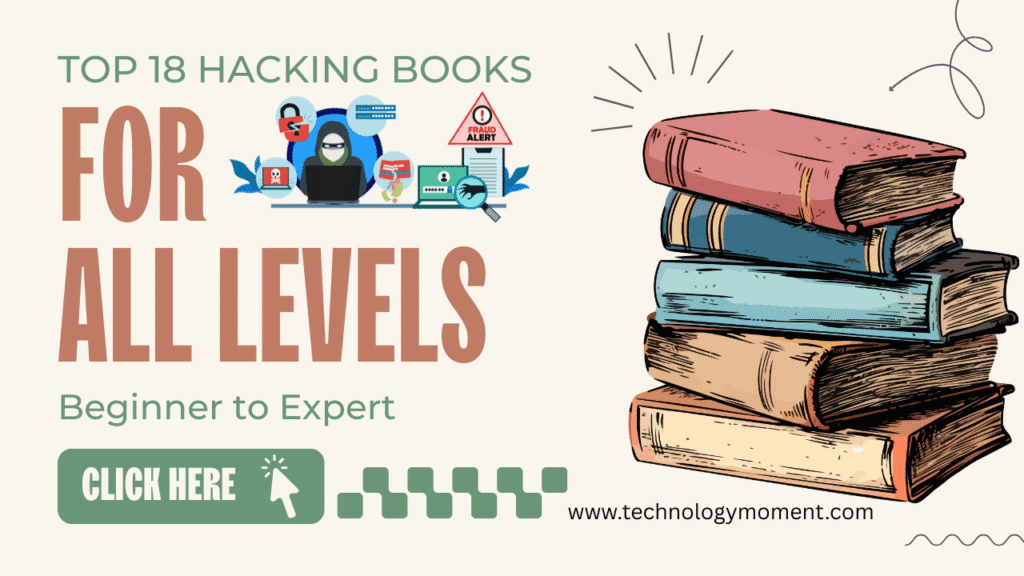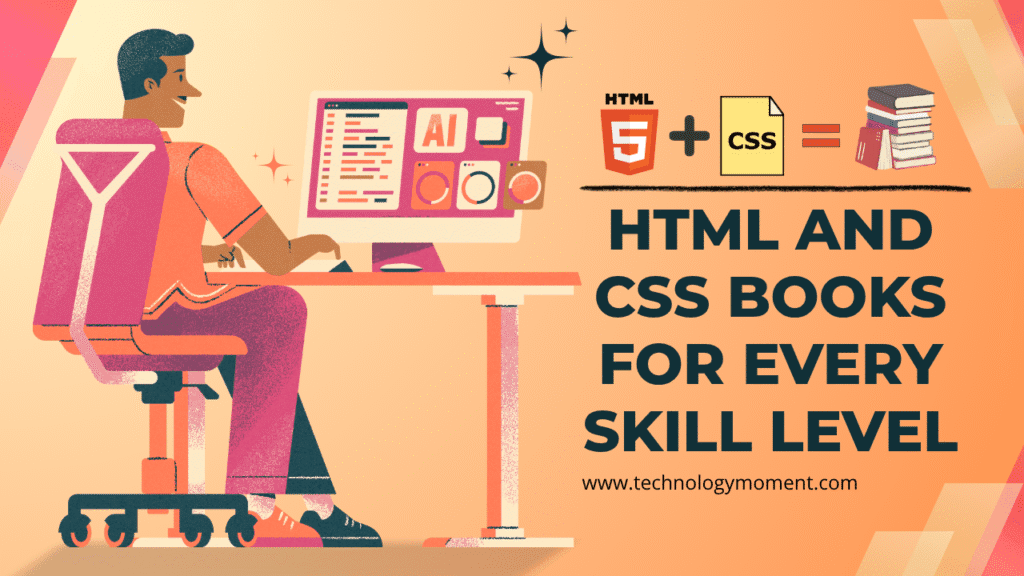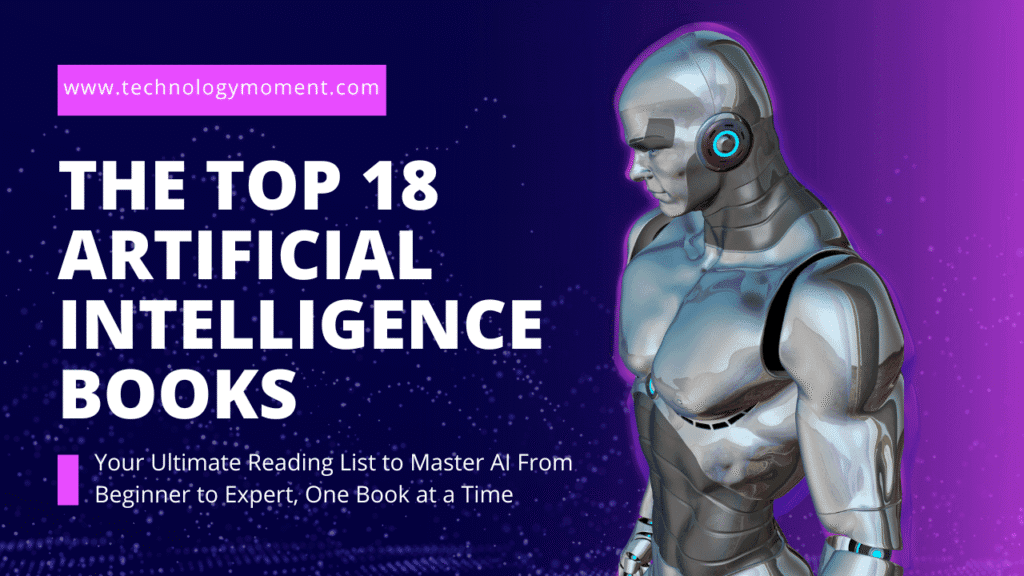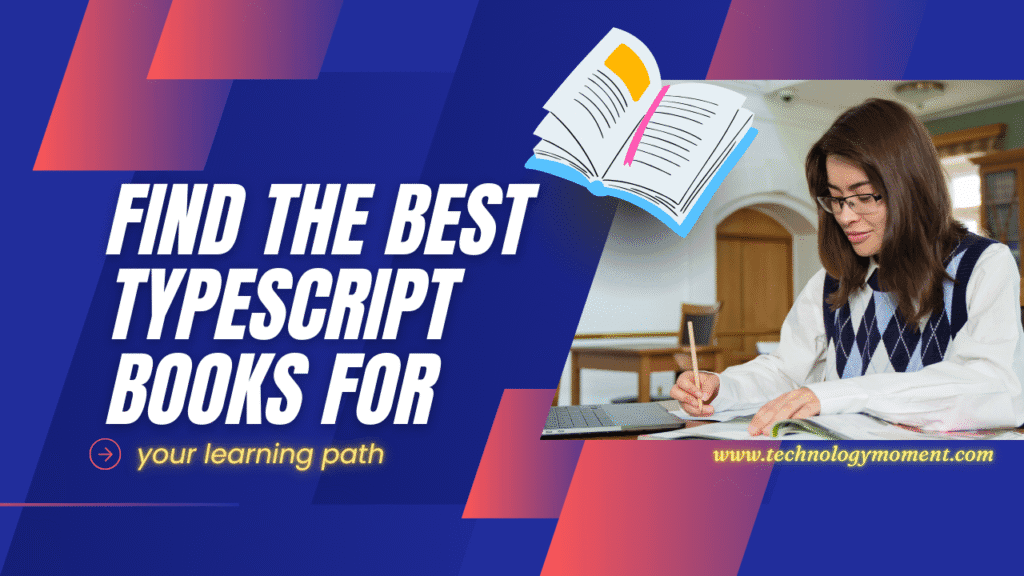Welcome to Technology Moment! we believe every breakthrough begins with curiosity—and every expert was once a beginner. We’re your go-to space for discovering the best tech resources, staying ahead in the coding world, and unlocking your true potential.
Today, we’re diving into something close to every coder’s heart: (Data Structures and Algorithms) DSA Python Books. Whether you’re starting from scratch, strengthening your core skills, or gearing up for tough coding interviews, mastering DSA is a total game-changer.
And what better way to learn than with the perfect book in your hands?
In this blog post, we’ve handpicked 18 Awesome DSA Python Books, tailored to every level—beginner, foundation, intermediate, advanced, expert, and specialization. Each recommendation is designed to meet you exactly where you are and push you confidently toward your goals.
Ready to find your next great read and level up your coding journey? Let’s jump in!
Imagine building a massive Lego city without understanding how the pieces fit together. Pretty tough, right? That’s exactly what it’s like trying to become a great programmer without learning Data Structures and Algorithms (DSA).
Now, mix that with the simplicity and power of Python—a language loved by beginners and pros alike—and you’ve got a winning combo. Python’s clean syntax helps you concentrate on the real deal: understanding algorithms and mastering data structures without getting bogged down by complicated syntax rules.
This article isn’t just a list of books. It’s your personal roadmap to finding the perfect DSA book tailored to your current skill level—whether you’re just starting out, brushing up on the basics, or diving deep into complex algorithms. Let’s make your DSA journey smoother, smarter, and a lot more fun!
Table of Contents
Why Use Python to Learn Data Structures and Algorithms (DSA)?
Here’s why Python + DSA is the ultimate duo:
- Simplicity Meets Power:
Python’s easy-to-read syntax lets you focus on learning how an algorithm works rather than struggling with how to write it. Instead of battling curly braces and semicolons, you’re solving problems and building intuition. - Massive Library Support:
Need a graph? A heap? A quick sort implementation? Python’s libraries (likecollections,heapq,bisect, and evennetworkx) have got your back, helping you implement complex structures without starting from scratch. - Fast Learning Curve:
If you’re new to coding, Python helps you learn faster because you don’t need to memorize lots of weird syntax rules. You can start writing functional algorithms in no time. - Industry Favorite for Interviews:
Many top tech companies (think Google, Meta, Amazon) allow or even prefer Python for coding interviews because you can express solutions quickly and cleanly. - Transferable Skills:
Once you understand core concepts like trees, graphs, and dynamic programming, adapting them into C++, Java, or Go becomes way easier.
In short: mastering DSA with Python is like unlocking “God Mode” for your programming journey.
Choosing the Right Book for Your Level
Choosing a DSA book is like choosing shoes for a marathon—you need the right fit, or you’re going to hate the journey!
Here’s how to find your perfect match:
- Beginner Level:
If you’re new to programming or Python itself, you need books that start from scratch, explaining basic programming concepts alongside easy data structures. Look for simple examples, lots of illustrations, and beginner-friendly language. - Foundation Level:
Maybe you know a bit of Python syntax and want to build a strong base in DSA fundamentals. Here, books should start introducing you to standard structures like arrays, stacks, queues, and basic algorithms like searching and sorting—but still in a friendly tone. - Intermediate Level:
If you’re comfortable writing code but want to optimize solutions and solve complex problems, go for books that challenge you with real-world problems, puzzles, and coding exercises. You should be ready to dive into linked lists, binary trees, recursion, and dynamic programming here. - Advanced Level:
Already solving LeetCode Mediums with ease? Time to level up with books that deal with graph algorithms, greedy methods, segment trees, and algorithmic complexity analysis. At this stage, you’ll want fewer hand-holding examples and more real-world deep dives. - Expert Level:
For those aiming to crack top-tier coding interviews or building heavy-duty applications, you’ll need books that go deep into algorithm design, mathematical proofs, optimization techniques, and complex data structures like suffix trees or max flow algorithms. - Specialization:
Maybe you want to crush interviews, specialize in AI/ML, or ace competitive programming. Specialized books focus on specific goals, offering tailored practice and challenges.
Bottom Line:
Choosing the right book depends on knowing where you are now and where you want to go. Pick the one that matches your current skills but challenges you just enough to keep growing.
Best DSA Python Books for Beginners
Starting with DSA can feel like standing at the bottom of a huge mountain. Don’t worry—you just need the right tools (and books) to climb it! Here are the top beginner-friendly picks:
“Python Crash Course” by Eric Matthes
If you’re completely new to programming and Python, Python Crash Course is like your best friend holding a flashlight in the dark. It’s straightforward, fun, and covers Python basics quickly, allowing you to dive into small DSA concepts without feeling overwhelmed.
- Why it’s great:
It balances theory and practice beautifully. By the time you’re through, you’ll not only understand basic syntax but also feel comfortable tackling simple data structures like lists, dictionaries, and classes. - Perfect for:
Total beginners who want a hands-on, project-driven start.
” Data Structures Using Python” by Bradley N.
Think of this book as your first real blueprint to problem-solving with Python. It introduces core data structures (stacks, queues, trees) and explains basic algorithms in a way that feels like storytelling rather than dry academic lectures.
- Why it’s great:
The authors explain “why” and “how” rather than just “what.” They focus on practical implementation, so you really understand how things work behind the scenes. - Perfect for:
Beginners who have some basic Python knowledge and are eager to move deeper into DSA concepts.
“Grokking Algorithms” by Aditya Bhargava
Imagine having a coffee with a friend who draws doodles on a napkin to explain tough algorithms—this book feels exactly like that. It simplifies complex topics through visual explanations and analogies, making DSA genuinely enjoyable to learn.
- Why it’s great:
Super easy to digest, loaded with diagrams, and designed for “aha!” moments. It’s not Python-specific but uses Python code snippets when needed. - Perfect for:
Visual learners and beginners who want to “grok” (deeply understand) algorithms without feeling like they’re reading a math textbook.



Best DSA Python Books for Foundation Level
Once you know the basics, it’s time to strengthen your core. These foundation-level books dive a little deeper, ensuring you understand not just what works but why it works.
Michael T. Goodrich, Roberto Tamassia, and Michael H. Goldwasser “Data Structures and Algorithms in Python”
This is like the Swiss Army knife of DSA books for Python learners. It covers everything from basic data types to advanced structures like heaps and balanced trees, providing thorough explanations along the way.
- Why it’s great:
It offers real-world examples and walks you through implementing various data structures and algorithms in clean, professional-grade Python code. - Perfect for:
Learners who are serious about mastering DSA with an academic yet approachable resource.
Benjamin Baka “Python Data Structures and Algorithms”
This book feels like a smooth upgrade from the beginner level. It’s hands-on and gives practical implementations for almost every data structure, from basic arrays and linked lists to graphs and network algorithms.
- Why it’s great:
The writing is direct, and the examples are very implementation-focused. If you love to code your way into understanding, this book is a gem. - Perfect for:
Students and self-learners who want to start building real-world apps while mastering DSA concepts.
Alexander Kulikov and Pavel Pevzner
Love puzzles? Then this one’s for you! The book transforms algorithm learning into a series of brain teasers and programming puzzles, making the whole experience super engaging and less intimidating.
- Why it’s great:
The authors combine theory with practice in a playful way. Plus, they often show multiple solutions to the same problem, encouraging deeper thinking. - Perfect for:
Curious minds who enjoy solving problems creatively while building a strong foundation in DSA.



Best DSA Python Books for Intermediate Level
Here, you’ll deal with slightly complex problems, optimize your solutions, and get ready for serious real-world challenges. Let’s check the top picks:
Daniel Zingaro “Algorithmic Thinking: A Problem-Based Introduction”
This book is like a brain gym! It teaches you not just how algorithms work, but why they work through carefully designed problems. Each chapter presents real-life problems that challenge you to think algorithmically.
- Why it’s great for intermediate learners: It doesn’t just hand you the answers. Instead, it guides you to develop a mindset for problem-solving.
- Highlights: Covers searching, recursion, dynamic programming, graphs, and more— with Python snippets all along the way.
- Perfect for: Students preparing for coding competitions or technical interviews.
“Mastering DSA Using Python” by Abdul Bari
If you’ve ever watched Abdul Bari’s YouTube tutorials, you know he’s a legend for explaining tough topics simply. His book mirrors that same clarity.
- Why it’s great for intermediate learners: It bridges the gap between “knowing” and “understanding deeply” how data structures behave internally.
- Highlights: Includes heaps, trees, hashing, graphs, sorting algorithms, and complexity analysis.
- Perfect for: Anyone who learns better through clear explanations, examples, and lots of visuals.
“Python Algorithms” by Magnus Lie Hetland
This book brings a nice balance between theory and practical application. It covers classic algorithms but also dives into real-world uses like web crawling and machine learning preprocessing.
- Why it’s great for intermediate learners: It’s not just textbook examples. You’ll see how these algorithms can be used in real projects.
- Perfect for: Developers wanting to apply algorithms in actual software rather than only solving textbook problems.



Best DSA Python Books for Advanced Level
Now you’re stepping into the big leagues! Advanced-level DSA isn’t just about solving problems—it’s about optimizing solutions, designing efficient systems, and handling edge cases under strict time and space constraints.
“DSA in Python” by Basant Agarwal
This book is the next logical step if you want to go beyond the basics and tackle specialized structures.
- Why it’s great for advanced learners: It delves into advanced topics like Fibonacci heaps, suffix trees, AVL and red-black trees, and B-trees.
- Highlights: It includes practical Python examples with complex topics like graph optimizations and advanced hashing techniques.
- Perfect for: Students preparing for top-tier tech interviews like Google, Facebook, Amazon, or serious software engineering roles.
George T. Heineman “Algorithms in a Nutshell”
- Why it’s great for advanced learners: It helps you choose the right algorithm for the right situation—critical for designing efficient systems.
- Highlights: Detailed comparisons between different algorithms, decision trees for selecting the right data structure or algorithm, and working Python code.
- Perfect for: Professionals needing a quick, reliable reference for real-world algorithm decisions.
“Introduction to Algorithms (CLRS)” – Python Implementations
CLRS (Cormen, Leiserson, Rivest, Stein) is the Bible of Algorithms. Even though the original isn’t Python-specific, many versions and online translations now include Python implementations.
- Why it’s great for advanced learners: It’s exhaustive. It doesn’t just tell you what works—it shows you why it works mathematically and computationally.
- Highlights: Deep dives into sorting, graph theory, dynamic programming, NP-completeness, and so much more.
- Perfect for: Hardcore learners and those aiming for research roles, algorithm design, or elite coding competitions.



Best DSA Python Books for Expert Level
When you reach the expert level, you’re not just learning how an algorithm works—you’re learning why it works and when to use it. These books are perfect for sharpening your deep problem-solving skills and preparing for high-level coding interviews, research, or competitive programming.
Steven S. Skiena “The Algorithm Design Manual”
Steven Skiena’s book is practically a bible for serious algorithm enthusiasts.
It’s not Python-exclusive, but the logic applies beautifully, and many Python practitioners swear by it. The book divides into two parts: first, explaining algorithm design techniques and second, offering a “catalog” of common problems (the “Hitchhiker’s Guide to Algorithms”).
If you’re into competitive programming, research, or big-league interviews, this is a must-read.
Why it’s great:
- Heavy focus on real-world problems.
- Offers a practical “design toolbox” for building new algorithms.
- Skiena’s witty, accessible writing style makes tough concepts digestible.
Jon Kleinberg and Éva Tardos “Algorithm Design”
This book is legendary in computer science courses worldwide. Although it doesn’t specifically target Python, the concepts are universal and adaptable to Python easily.
It emphasizes problem-solving patterns over rote memorization—teaching you to think like an algorithmist.
Why it’s great:
- Deep dive into core ideas like greedy algorithms, divide-and-conquer, dynamic programming.
- Perfect balance between theory and application.
- Focus on design paradigms helps in understanding unseen problems too.
“Competitive Programming in Python” by Christoph Dürr and Jill-Jênn Vie
This book is tailored for Python lovers who want to win coding competitions like ICPC, Codeforces, and LeetCode challenges.
It covers advanced DSA topics like segment trees, dynamic programming optimization, graph theory, and advanced greedy strategies—all in pure Python!
Why it’s great:
- Pure Python code examples, no C++ confusion.
- Real competitive problems discussed.
- Great for speeding up your thinking and coding under time pressure.



Specialized DSA Python Books
Sometimes, you need a book that targets a specific skill—like acing interviews or developing a deep algorithmic intuition.
These specialized books zero in on those needs.
“Elements of Programming Interviews in Python”
It offers 300+ problems with detailed solutions and is structured to mirror what you’ll experience in real coding interviews.
It’s neatly divided into basic topics first (arrays, strings) and advanced ones (DP, graphs).
Why it’s great:
- Real-world interview problems organized by difficulty.
- Clear problem-solving patterns explained.
- Python code is clean, efficient, and interview-ready.
“Programming Interviews Exposed” by John Mongan
This classic interview prep guide now includes Python examples!
Unlike other books that just throw problems at you, this one actually explains the thought process you should follow while solving interview questions.
Why it’s great:
- Focuses on interview strategies, not just solutions.
- Includes behavioral and technical question tips.
- New editions updated for modern Python and tech interview expectations.
“Data Structures and Algorithmic Thinking with Python”
If you want to dig super deep into algorithmic thinking, Karumanchi’s book is your best friend.
It’s not just a collection of problems—it trains you to approach new challenges creatively.
It even features multiple ways to solve the same problem to expand your thinking.
Why it’s great:
- Solutions include basic, optimized, and alternative approaches.
- Especially useful for software engineers aiming for FAANG-level jobs.



Conclusion
In the conclusion section, we want to wrap up the entire article nicely and leave readers with a clear takeaway. Here’s how we’ll approach it:
- Summarize the Importance: Reiterate why mastering DSA with Python is such a critical skill today — whether for acing technical interviews, excelling in computer science courses, or solving real-world problems.
- Encourage Action: Motivate readers to pick a book suited to their current skill level and start studying consistently.
- Highlight Flexibility: Emphasize that there’s no “one-size-fits-all” book. Depending on personal learning styles, readers might prefer more theory-heavy, problem-focused, or beginner-friendly approaches — and that’s okay.
- Positive Reinforcement: End on an inspiring note, like reminding readers that every expert was once a beginner. With dedication, they too can master DSA concepts over time.
FAQs
In the FAQ section, we’ll answer the most common beginner and intermediate questions about learning DSA with Python. Each FAQ will be written clearly and conversationally, making it super easy to read and helpful. Here’s a breakdown:
Which book is the best for those who are new to DSA using Python?
Explain that “Python Crash Course” and “Problem Solving with Algorithms and Data Structures Using Python” are great starting points because they simplify concepts without overwhelming readers. Suggest starting with one and sticking to it consistently.
Can I master DSA with only one book?
Be honest here — while one great book can take you far, real mastery often comes from using multiple resources, practicing tons of problems, and sometimes supplementing with online courses or practice platforms like LeetCode and HackerRank.
How long does it take to learn DSA with Python?
Give a range based on dedication — for example, 3-6 months of focused learning can bring significant proficiency. Also, mention that consistent daily or weekly practice matters more than “cramming.”
Are there free resources to complement these books?
List a few, like online tutorials, free coding practice sites (e.g., GeeksforGeeks, LeetCode, HackerRank), and video lectures on YouTube. Mention that pairing a book with free resources can accelerate learning.
Should I study DSA before learning frameworks like Django?
Recommend that while it’s possible to build apps with Django early on, a strong foundation in DSA makes a huge difference later, especially for optimizing apps, scaling, and succeeding in tech interviews.













